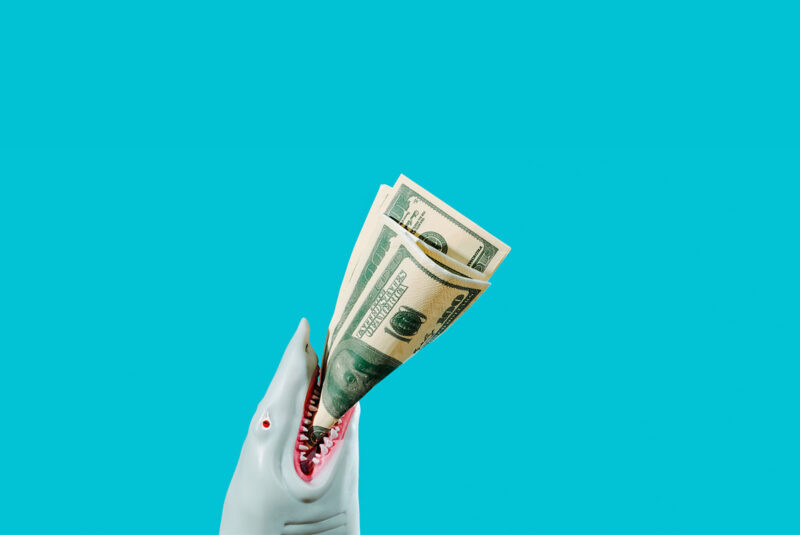Explore your mortgage options
It’s not unusual to carry credit card debt. In fact, about half of active credit card accounts in the U.S. actually carry a balance from one month to the next.[1] That said, it’s better to pay off your debt if you can.
Two popular ways to pay down or pay off credit card debt are with a personal loan used for debt consolidation or a balance transfer credit card. But which is better?
In this article, we’ll go over the main differences between these options and give you the advantages and disadvantages of both. Then you can decide the best way to reduce or pay off your credit card debt.
Existing Debt Got You Down?
Let Rocket LoansSM help you with a debt consolidation loan. With same-day funding options, you can get back on track fast.
Checking your options won’t affect your credit score.
Balance Transfer Credit Card vs. Personal Loan: Main Differences
First, let’s talk about balance transfers and personal loans used for debt consolidation (also known as debt consolidation loans):
- Balance transfer: A balance transfer is the process of moving high-interest credit card debt to a low- or no-interest card in order to consolidate debt and save money on interest charges.
- Debt consolidation loan: A debt consolidation loan is an unsecured personal loan that you use to consolidate debt at a lower interest rate. Unsecured means you don’t have to put up any collateral.
Now, let’s compare the two at a glance. Here are some of the main differences between a balance transfer and a personal loan for debt consolidation:
| Balance Transfer Credit Card | Personal Loan | |
| Loan Amount / Credit Limit | Your credit history influences your credit limit, which can range from $300 – $15,000 or higher | Generally, personal loans range from $2,000 – $45,000 |
| Annual Percentage Rate (APR) and repayment term | Variable introductory rates can start at 0% for 6 – 24 months. After the intro period, APRs are usually higher than what you’ll see for personal loans | Will vary by lender, usually over 10% for a 24-month loan.[2] |
| Approval Requirements | Varies by card but can be influenced by your credit history and even the economy | Lenders will review your credit score, income history and debt-to-income (DTI) ratio |
| Fees | Balance transfer fee: 2% – 5% of the balance with a minimum fee of about $5 | Origination fee varies by lender, generally 1% – 8% of the amount you borrow |
Balance Transfer Credit Card: Pros and Cons
Like many things in life, evaluating whether something is worthwhile or suitable for you involves making a pro/con list. Well, we’ve done that for you! Here are some of the main benefits and drawbacks of a balance transfer credit card:
PROS of balance transfers👍
Balance transfer cards frequently offer 0% APR promotional periods. This can save you a significant amount on interest, especially if you can pay off your balance within the promotional window.
Some balance transfer credit cards offer rewards/cash back on purchases. So, while you’re paying off your balance, anything new you purchase can earn reward points.
If you make your monthly payments on time, you can improve your credit score. Additionally, opening a new credit card without closing out any old ones can lower your credit utilization ratio (which is how much of your available credit you’re using). This is also good for your credit.
CONS of balance transfers👎
The main disadvantage of a credit card balance transfer is that the low introductory interest rate usually reverts to a higher rate after 6 – 24 months. So credit card debt that remains after your introductory offer ends will begin accruing interest at a higher variable APR.
Usually, you’ll pay a balance transfer fee of up to 5% of the transferred amount. Some cards also have an annual fee.
While transferring your credit card debt is great, you’ll still need to address the spending habits that got you into debt to begin with. Otherwise, you may end up back in the same position.
Personal Loans for Debt Consolidation: Pros and Cons
A debt consolidation loan has its own benefits and drawbacks. Here are some common pros and cons of debt consolidation loans (personal loans):
PROS of personal loans👍
With a fixed rate, your monthly payments will be predictable and easier to budget for.
Depending on the lender, you can typically get a personal loan with a repayment term that’s 2 – 7 years, giving you lots of time to pay off the loan.
If you have other debt besides credit card debt, such as medical bills or student loans, you can use your personal loan to pay them all off.
Paying off your credit card debt and making all your monthly loan payments on time will help boost your credit score.
CONS of personal loans👎
Personal loans generally have lower interest rates than credit cards. But even with excellent credit, you won’t find a personal loan with a 0% APR introductory period.
You’ll typically be charged an origination fee for the loan, which can range from 1% to 8% of the loan amount.
Even though you’ll typically have longer to pay off your loan, having a loan to pay off can make it necessary to pause other financial goals like buying a house.
Is a Balance Transfer or Personal Loan Better?
The big question: Is it better to consolidate debt with a balance transfer credit card or a personal loan?
Each one is better in different circumstances. Whether one is better for you will depend on your financial situation, the amount of debt you have and how long you need to pay it off.
When is a balance transfer better?
In general, a credit card balance transfer is good if you expect to be able to pay off your balance while the introductory rate still applies.
Most low-interest or no-interest credit cards have an introductory rate, also referred to as a teaser rate. This special APR is generally only available within the first few months to 2 years of getting the card.
After the introductory period (or promotional period), the interest rate will revert to a higher rate. Credit card interest rates are generally higher than personal loan interest rates.
So, if it’s going to take you longer than the introductory period to pay off your balance, you might be better off paying down your debt in a different way.
When is a personal loan better?
A personal loan tends to be better for debt consolidation if you have a large debt that will take a number of years to finish paying off.
For instance, let’s say you’ve racked up $6,000 in high-interest debt that you’ve transferred to a credit card with a 0% APR for 6 months. You manage to pay $1,000 of your balance in the first 6 months and now have a balance of $5,000, which you calculate will take you 3 years to pay off. But that 0% APR changed to an 18% APR.
Meanwhile, you’ve found a personal loan with a fixed interest rate of 7% and 3 years to pay it off. In this scenario, you’d save over $2,000 in interest over the same period of time by going with the personal loan over the balance transfer credit card.
FAQ: Frequently Asked Questions
A balance transfer can actually help your credit score in the long run if you stay on top of your payments. The faster you pay off your balance, the faster you’ll see your credit score improve.
It depends. In general, a debt consolidation loan can help your credit quite a bit. Having an installment loan where you make your monthly payments on time is great for your payment history, which is the largest factor that goes into your credit score. And, having the loan contributes to having a variety of types of debt (installment loans and revolving credit) that creditors generally like to see.
No matter what kind of loan you have, the amount you owe in relation to your income is important to lenders because it affects your debt-to-income (DTI) ratio. The amount you owe will matter more to lenders than the type of debt when applying for a mortgage.
In a word: yes. However, your interest rate will likely be higher than if you had good credit or excellent credit. You’re also less likely to be approved for a credit card with an introductory 0% APR. In general, the better your credit, the lower interest rate and better loan or credit card terms you’ll get.
Final Thoughts on Getting a Balance Transfer or Personal Loan
Both a balance transfer and a debt consolidation loan can be great options for helping you pay down your debt and increase your credit score. Be sure to explore other options like a home equity loan or home equity line of credit (HELOC). Which debt consolidation option is best for you will depend on your individual circumstances.
Ready To Reduce Your Existing Debt?
A debt consolidation loan from Rocket LoansSM can be the game-changer in making that possible. Take back control of your existing debt.
Checking your options won’t affect your credit score.
The Short Version
- A balance transfer is the process of moving high-interest credit card debt to a low- or no-interest card to consolidate debt and save money on interest charges
- The main disadvantage of a credit card balance transfer is that the low introductory interest rate usually reverts to a higher rate after 6 – 24 months
- A personal loan for debt consolidation tends to be better if you have a large debt that will take a number of years to finish paying off
Government Accountability Office. “American Credit Card Debt Hits a New Record—What’s Changed Post-Pandemic?” Retrieved January 2024 from https://www.gao.gov/blog/american-credit-card-debt-hits-new-record-whats-changed-post-pandemic
St. Louis Fed. “Finance Rate on Personal Loans at Commercial Banks, 24 Month Loan.” Retrieved January 2024 from https://fred.stlouisfed.org/series/TERMCBPER24NS




